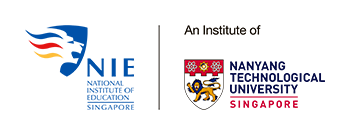
|
|


|
 |
|
|
- |
|
|
|
|
Course synopsis |
|
Advances in imaging techniques, behavioural and psychological research enable the integration of disciplines that investigate human learning, opening up possibilities for the enhancement, update and eventually the reform of educational theories and practices. The field of educational neuroscience and its potential contributions to educational research is now more pronounced than before. Apart from shedding light on brain mechanisms that underpin cognitive and social learning development, research on brain science is also contributing towards neurobiological evidence-based interventions that are addressing educational concerns. These include issues such as i) early learning struggles and early intervention, ii) challenges that individual differences pose, iii) effectiveness of educational and treatment approaches to cognitive struggles and deficits, iv) widening possibilities that brain plasticity brings to normal (e.g. life-long learning) and more. Such a neuroscience and education convergence not only carry multiple implications for educational policy but at the same time, foregrounds the mutual benefits of the interaction between neurobiology and education, as education may also conceivably offer a naturalistic framework for research on the brain. This course is designed to follow the ‘Foundations in Science of Learning’ course, and although it is not necessary to have taken this course previously, students will be expected to undertake some specified pre-reading. |
|
View More |
Objective |
|
Drawing upon research from interdisciplinary fields such as cognitive, neuroscience, developmental cognitive neuroscience, educational psychology, educational technology, education theory and other related disciplines, this course on is designed to provide a context for examining the role and applicability of neuroscientific findings to the broader field of education and learning. It aims to explore neuroscientific integration to education practices to solve core problems in education such as low achievement in numerical cognition, reading difficulties, attention and their attendant difficulties.
The course will include an oveiview of the wide range of recent initiatives in educational neuroscience, review research that has been carried out thus far to bridge the gap between the brain sciences and education, examine a variety of methodological concerns, issues, and directions with an aim to open up future perspectives for Educational Neuroscience. In exploring the interactions between biological processes and education, the course will • Seed and develop interdisciplinary perspectives in education, neuroscience, technology and other related fields • Examine key issues relating to educational neuroscience and mind, brain, and education more generally • Promote a theoretical and empirical base for the subject area • Explore a range of methods available for teaching and learning • Identify the body of work facilitating development in the field • Develop the capability and critical stance needed examine models, methods, and ethics for the field, as well as to interrogate neuroscientific theories for learning. |
Outline |
|
• A systematic review, analysis and interrogation of major areas of educational neuroscience work that is important for human learning
• Theories of educational neuroscience including addressing important, current issues in popular brain science perceptions/myths and their implications for learning • Exploration of neuroscientific theoretical models to understand the interaction between the factors involved in the consideration of pedagogy as well as human learning and well-being. This includes models in the areas of:
|
Course fee |
||||||||||||||||||
*MOE Educators include MOE & Direct Hire Staff from Independent, Specialised Independent and Specialised Schools. |
Pre-requisite |
|
•A good Bachelor's degree from a recognised university.
•A teaching qualification such as the NIE’s Postgraduate Diploma in Education or equivalent portfolio of professional learning certification/diploma in education practice. •At least two years of experience in teaching or professional experience in educational contexts. |
Who should attend |
|
All educators
|